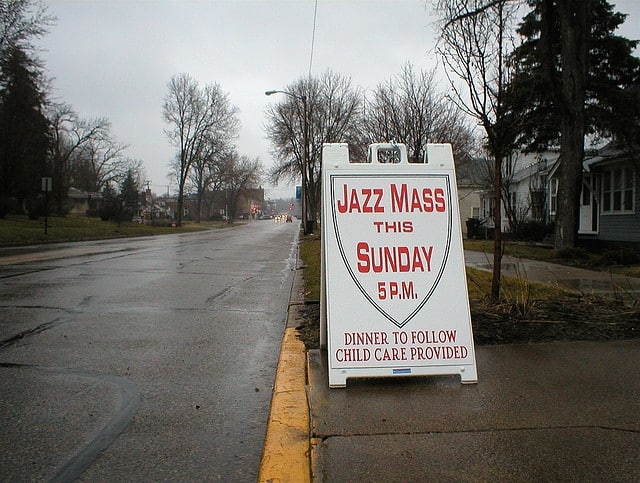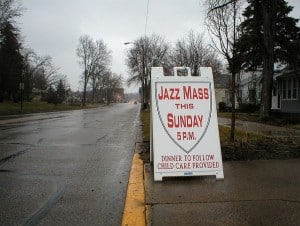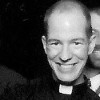As a teacher, there are times when you need to abandon the prepared script and go “class rogue.” Because it’s off-script and a breach of the usual operating procedure, students are generally willing to take these conversations with the utmost seriousness. Think of it as improvisational, jazz style pedagogy.
Jazz musicians “deliberately disrupt routines as a way of ‘unlearning’ so as to be more alive, alert, and open to new possibilities.” Organizational psychologist Frank Barrett, in his Yes to the Mess points out that in impromptu sessions with others, musicians learn to think and hear like jazz musicians. By playing with others, by encountering the “choice points” on which one focuses one’s performance, the musician grows in musical freedom. In pedagogical circles, we call this improvisation “flexibility-in-structure.”
Pope Francis’ recent audience with students was a perfect example of flexibility-in-structure. We may have a Jazz Pope. 1
- Do not let yourselves be robbed of hope! … And who robs you of hope? The spirit of the world, riches, the spirit of vanity, arrogance, pride. All of these things rob you of hope. Where do I find hope? In the poor Jesus, Jesus who became poor for us.
- Do not be afraid of falling. In the art of walking, what is important is not avoiding the fall but not remaining fallen. Get up quickly, continue on, and go…but it is also terrible to walk alone, terrible and boring. Walking in community with friends, with those who love us, this helps us … get to the end.
- We must participate in politics because politics is one of the highest forms of charity because it seeks the common good. And Christian lay people must work in politics.
In an institution where going rogue, or departing from the script, is a relatively new phenomenon, the Pope’s impromptu responses must be maddening. Yet they reveal the heart of a teacher who understands that his preparation and planning do not dictate the course an event must follow but, rather, equips him with the tools necessary to speak directly to his people.
Pope John Paul II and Pope Benedict XVI strike me as more symphonic thinkers: they were able to spin out huge works, massive thoughts, performed brilliantly. Pope Francis seems more like a Jazz musician who is able to lock into the deep rhythm of the music surrounding him and play with it, accommodate it, and transform it. His words do not colonize or squelch the music around him but kicks it into a new key – the key of Christ – and reminds all of us that Christ is the true key of our lives.
The Pope’s ongoing call for a more extroverted, outgoing Catholicism recalls Barrett’s “Jamming and Hanging Out: Learning by Doing and Talking:”
Jazz musicians seek to live lives of radical receptivity. Human beings are at their best when they do the same – when they are open to the world, able to notice expansive horizons of possibility, fully engaged in skillful activity, and living in contexts that summons responses that lead to new discoveries.
In his willingness to go off-script, to go a bit rogue, the Pope isn’t cavalierly or unthinkingly defying custom. Instead, he is leading us like a jazz musician who wants to give us the freedom to encounter Jesus as the choice point in the music of our lives, giving us the courage to play anew in the Christic key. We can, all of us, take a lesson from the jazz musicians and their “radical receptivity.” In saying yes to the mess of human life, the mess of Christian discipleship, we lock into the melody that brings joy to our hearts and gives us to play here and now the tune we hope to play, forever, in the Kingdom of God.
- As we know, when he was a young Jesuit, Pope Francis taught chemistry to high school students. ↩



